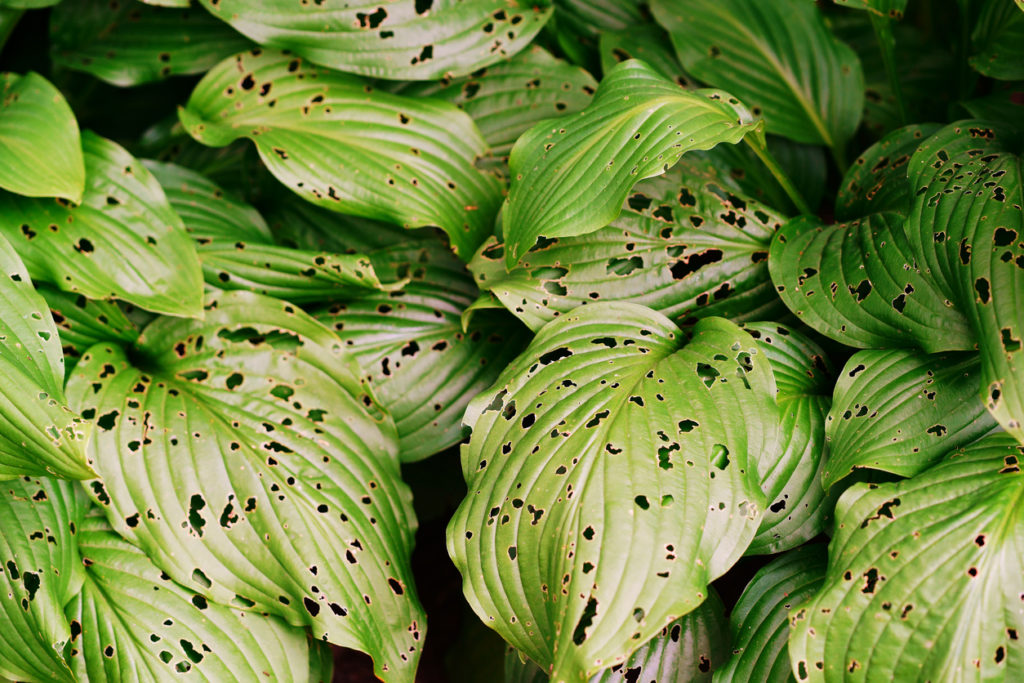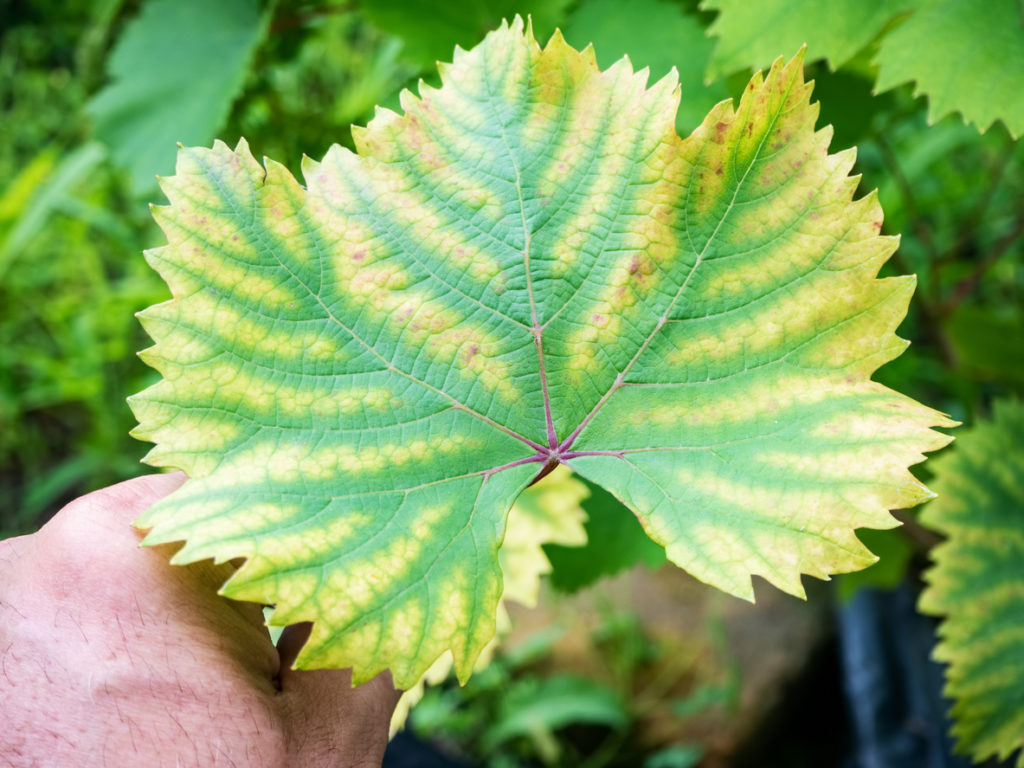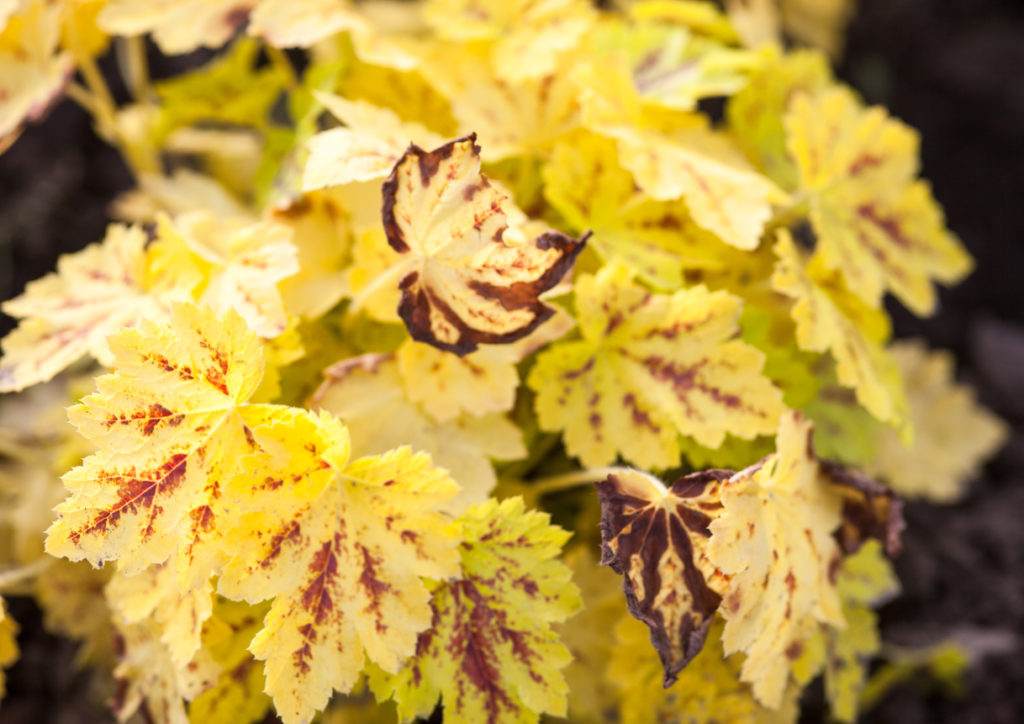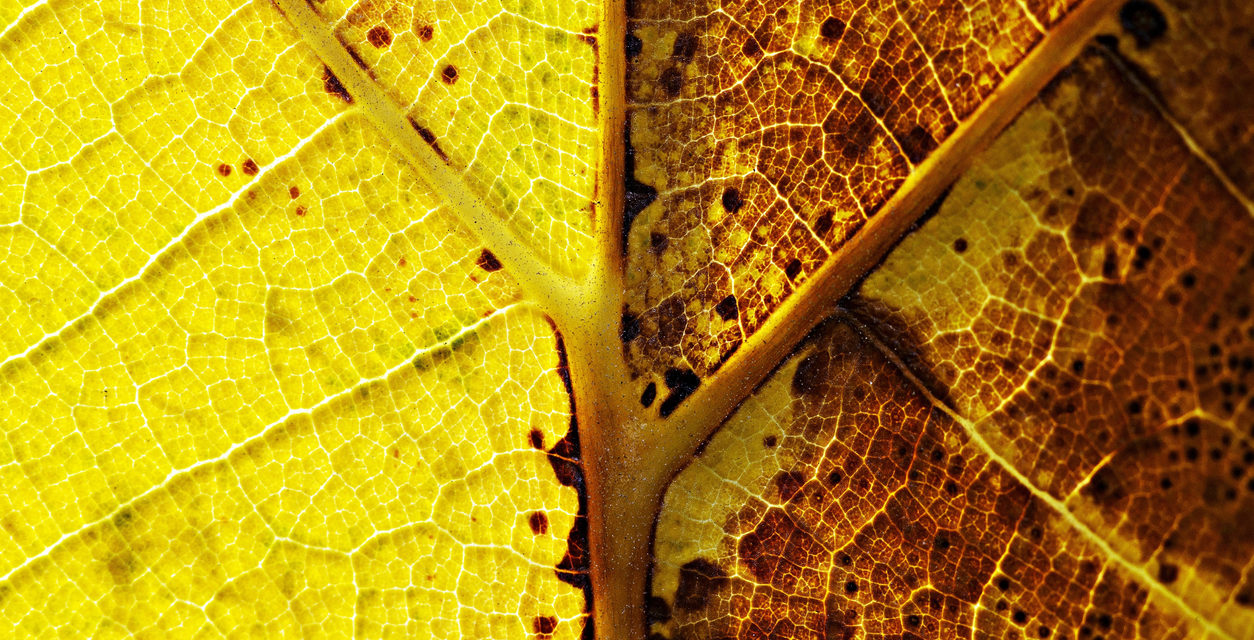Are your plants turning yellow? From lack of moisture to nutrient deficiency, find out what’s causing your plants to lose their natural shape and color. Here are 10 reasons why your plants are turning yellow.
1. Pests
Pesty creatures could be killing your plants. Look for signs of yellow discoloration and bite marks on leaves. Use neem oil or an all-natural pesticide to stop pests and bugs from eating your plants.

Photo Credit: redtea (iStock).
2. Dehydration
If your leaves are yellow and wilted, your plants are thirsty. Bring your plants back to life by simply watering them.
3. Lack of Sunlight
Leaves will fade and drop due to a lack of sunlight. To revive your plants, just move them to a nice sunny spot.
4. Overwatering
Too much water could actually be damaging your plants. Every plant is different, so make sure you research ahead of time to find out exactly how much you should be watering each plant.
5. Lack of Potassium
If your plants are low on potassium, the tips of your leaves will start to turn yellow and crumble. To help boost potassium levels, plant lemon or orange rinds in your garden’s soil.

Photo Credit: v_zaitsev (iStock).
6. Lack of Iron
If your plants are showing signs of an iron deficiency, leaves will be bright yellow with small green veins. You can easily solve this problem by balancing out your soil’s PH levels.
7. Lack of Calcium
When there is a calcium deficiency, leaves will start to lose their natural shape and form. Apply a soil additive to supply plants with missing nutrients for a quick and easy fix!
8. Nitrogen Deficiency
You can easily identify when your plants are having a nitrogen deficiency by looking for tips and center veins that are turning yellow. Coffee grounds, manure, or any other type of organic compost will help restore your plants.

Photo Credit: rootstocks (iStock).
9. Lack of Zinc
Lack of zinc causes leaves to form light discolorations between large veins. Save your plants from dying by spraying leaves with a kelp extract.
10. Lack of Magnesium
Leaves with white stripes along veins indicate low levels of magnesium. Using an organic compost that’s rich in magnesium will easily fix this problem.
Get your garden back in shape and return leaves to their normal colors with these quick and simple fixes.
 Photo Credit Adisak Mitrprayoon (iStock).
Photo Credit Adisak Mitrprayoon (iStock). 



Comment on: 10 Reasons Your Plants Are Turning Yellow